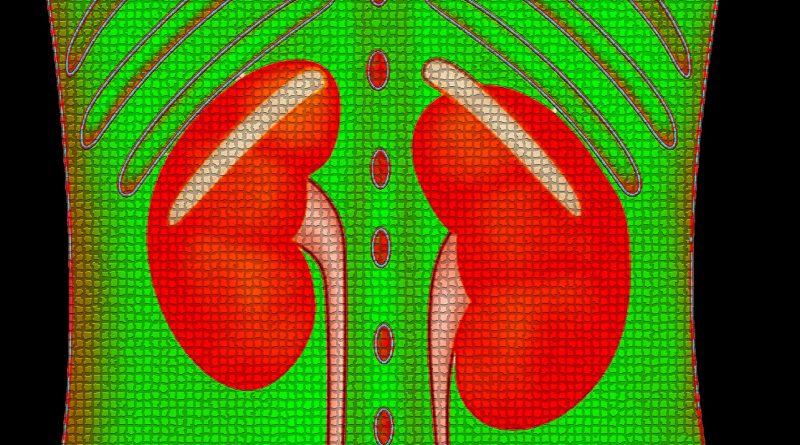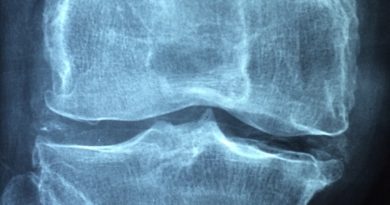AstraZeneca’s FARXIGA® gets designation for Chronic Kidney Disease
AstraZeneca’s FARXIGA® was granted Breakthrough Therapy Designation (BTD) in the U.S. for Chronic Kidney Disease, following the DAPA-CKD Phase III trial results in which the drug showed an unprecedented reduction in the risk of kidney failure and cardiovascular or renal death in patients with chronic kidney disease, the company announced on Friday.
FARXIGA® granted Breakthrough Therapy Designation (BTD) in the U.S. for CKD
FARXIGA ® (dapagliflozin), the novel drug developed by AstraZeneca has been awarded a BTD in the United States for patients with Chronic Kidney Disease (CKD) with and without Type 2 Diabetes (T2D).
Approximately, 37 million people in the U.S. are estimated to be suffering from CKD, a progressive condition entailing decreased kidney function and linked to an increased risk of heart disease or stroke.
The Food and Drug Administration (FDA)’s BTD is designed to speed-up the development and regulatory review process of possible new therapeutics to treat serious conditions and address important unmet medical needs. The new drug needs to have shown promising early clinical results that indicate a significantly better clinical treatment endpoint outcome over already available drugs.
Mene Pangalos, Executive Vice President, BioPharmaceuticals R&D, commented:
“There is a serious, unmet need for better and earlier treatment options for patients with chronic kidney disease. Following the ground-breaking DAPA-CKD results, the Breakthrough Therapy Designation is further testament to FARXIGA’s potential to slow the progression of chronic kidney disease. We look forward to working with the FDA to make FARXIGA available to patients in the US as quickly as possible.”
The grant of the Breakthrough Therapy Designation by the FDA is based on scientific results from the DAPA-CKD trial. The detailed findings revealed in August had demonstrated that FARXIGA on top of the routine treatment decreased the cumulative indicator of deterioration of renal function or likelihood of cardiovascular (CV) or renal mortality by 39 percent relative to placebo (absolute risk reduction [ARR] = 5.3 percent, p<0.0001) in CKD patients, while also substantially reducing mortality from any cause by 31 percent (ARR = 2.1 perceived).
FARXIGA was approved in the U.S. as an adjunct to diet and exercise to improve glycemic control in adults with T2D and to reduce the likelihood of hospitalization for heart failure in patients with T2D and established Cardiovascular disease or multiple CV risk factors.
In May 2020, FARXIGA was licenced in the US to reduce the risk of CV death and hospitalization for heart failure (hHF) in adults with heart failure (HF) (NYHA class II-IV) with reduced ejection fraction (HFrEF) with and without T2D. FARXIGA is not recommended to prevent the deterioration of renal failure or death in patients with CKD.
Chronic Kidney Disease
CKD is a serious, progressive chronic condition featured by deteriorating kidney function (defined by reduced estimated glomerular filtration rate [eGFR] or markers of kidney damage, or both, for at least three months) affecting nearly 700 million people globally, many of them still undiagnosed. The most common causes of CKD are diabetes, hypertension and glomerulonephritis. CKD is associated with significant patient morbidity and an increased risk of Cardiovascular events and fatalities, such as Heart Failure and premature death. In its most severe form, known as end-stage kidney disease (ESKD), kidney damage and deterioration of kidney function have escalated to the stage where dialysis or kidney transplantation are required. The majority of patients with CKD will die from CV causes before reaching ESKD.
The DAPA-CKD trial
DAPA-CKD is a multi-national, multi-center, randomized, double-blinded trial in 4,304 patients to test the efficacy of FARXIGA 10mg, compared with placebo, in patients with CKD Stages 2–4 and increased urinary albumin excretion, with and without T2 Diabetes. FARXIGA is given once daily in addition to the routine treatment. The primary endpoint is worsening of renal function or risk of death (defined as a combination of an eGFR decline ≥50%, onset of ESKD and death from Cardiovascular or renal cause). The secondary endpoints included the time to first occurrence of the renal composite (sustained ≥50% eGFR decline, ESKD and renal death), the composite of CV death or hHF, and death from any cause. The trial was conducted in 21 countries and high-level results were announced in July 2020.
AstraZeneca in CV, Renal & Metabolism (CVMD)
The AstraZeneca’s main therapy development efforts are dedicated to the Cardiovascular, Metabolism and Renal field which combined have become a major growth factor booster for the company.
AstraZeneca is devoted to engineering a range of drugs to protect organs and drive performance by preventing the progression of the disease, reducing complications and tackling co-morbidities by exploring the scientific evidence to identify more precisely the fundamental connections between the heart, kidneys and pancreas.
For more information please visit: https://www.astrazeneca-us.com
Original Source: https://www.astrazeneca.com/media-centre/press-releases/2020/farxiga-granted-breakthrough-therapy-designation-in-us-for-chronic-kidney-disease.html
More headlines





